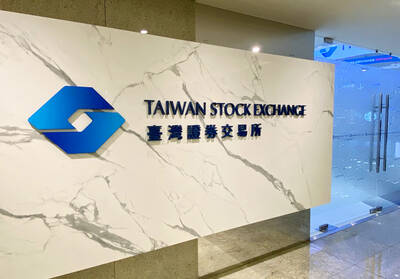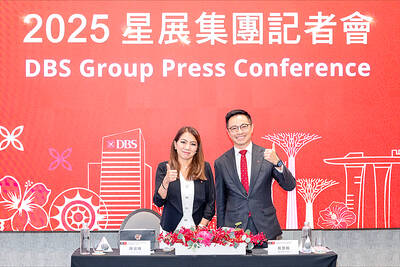The Coca-Cola Co said on Friday that its new chairman and chief executive will get US$1.5 million in salary a year and is eligible for roughly US$13.5 million more in other performance-based compensation.
The disclosure, contained in a filing with the Securities and Exchange Commission, came two days after CEO Neville Isdell warned that the company's third-quarter per-share income will drop at least 24 percent from a year ago.

PHOTO: EPA
Coke spokesman Ben Deutsch defended Isdell's compensation package.
"His annual compensation is reflective of the board's confidence in his ability to lead the company. It is within the competitive range of CEOs at other high performing peer companies," Deutsch said.
He cited the US$1 million in salary and US$3.8 million bonus that rival PepsiCo Inc's chief executive, Steven Reinemund, received last year. He also noted that Isdell's predecessor at Coke, Doug Daft, received US$1.5 million in salary last year and a US$4 million bonus.
On Wednesday, Coke, citing poor weather in Europe and problems executing its business strategy in North America, said its reported net earnings for the July-September period will be in the range of US$0.35 to US$0.38.
In addition to his annual salary, Isdell also will be eligible for 200 percent of his base salary, or US$3 million, a year as part of the company's incentive program and US$10.5 million as part of the company's annual long-term equity plan, Friday's regulatory filing shows.
The actual amounts he receives will be based on his and the company's performance.
Other perks: Isdell is eligible to receive company-paid membership and reimbursement of dues and initiation fees associated with country clubs and social clubs he joins for business purposes, and he is eligible to receive reimbursement of US$10,000 in financial planning and counseling services in the first year of a related company program, the filing says.

Taiwan Semiconductor Manufacturing Co (TSMC, 台積電) secured a record 70.2 percent share of the global foundry business in the second quarter, up from 67.6 percent the previous quarter, and continued widening its lead over second-placed Samsung Electronics Co, TrendForce Corp (集邦科技) said on Monday. TSMC posted US$30.24 billion in sales in the April-to-June period, up 18.5 percent from the previous quarter, driven by major smartphone customers entering their ramp-up cycle and robust demand for artificial intelligence chips, laptops and PCs, which boosted wafer shipments and average selling prices, TrendForce said in a report. Samsung’s sales also grew in the second quarter, up

LIMITED IMPACT: Investor confidence was likely sustained by its relatively small exposure to the Chinese market, as only less advanced chips are made in Nanjing Taiwan Semiconductor Manufacturing Co (TSMC, 台積電) saw its stock price close steady yesterday in a sign that the loss of the validated end user (VEU) status for its Nanjing, China, fab should have a mild impact on the world’s biggest contract chipmaker financially and technologically. Media reports about the waiver loss sent TSMC down 1.29 percent during the early trading session yesterday, but the stock soon regained strength and ended at NT$1,160, unchanged from Tuesday. Investors’ confidence in TSMC was likely built on its relatively small exposure to the Chinese market, as Chinese customers contributed about 9 percent to TSMC’s revenue last

Taiwan and Japan will kick off a series of cross border listings of exchange-traded funds (ETFs) this month, a milestone for the internationalization of the local ETF market, the Taiwan Stock Exchange (TWSE) said Wednesday. In a statement, the TWSE said the cross border ETF listings between Taiwan and Japan are expected to boost the local capital market’s visibility internationally and serve as a key for Taiwan becoming an asset management hub in the region. An ETF, a pooled investment security that is traded like an individual stock, can be tracked from the price of a single stock to a large and

Despite global geopolitical uncertainties and macroeconomic volatility, DBS Bank Taiwan (星展台灣) yesterday reported that its first-half revenue rose 10 percent year-on-year to a record NT$16.5 billion (US$537.8 million), while net profit surged 65 percent to an unprecedented NT$4.4 billion. The nation’s largest foreign bank made the announcement on the second anniversary of its integration with Citibank Taiwan Ltd’s (花旗台灣) consumer banking business. “Taiwan is a key market for DBS. Over the years, we have consistently demonstrated our commitment to deepening our presence in Taiwan, not only via continued investment to support franchise growth, but also through a series of bolt-on acquisitions,” DBS